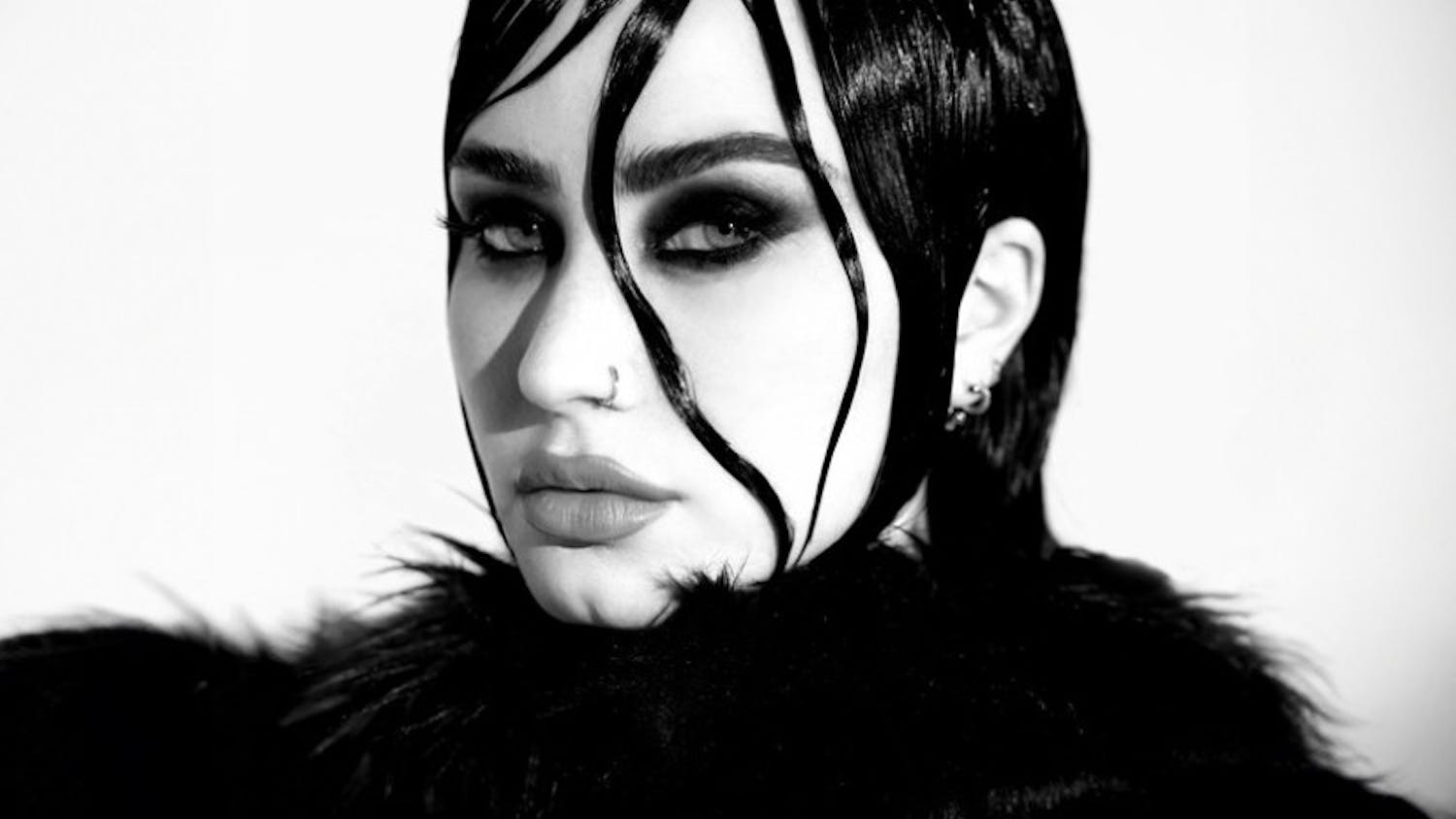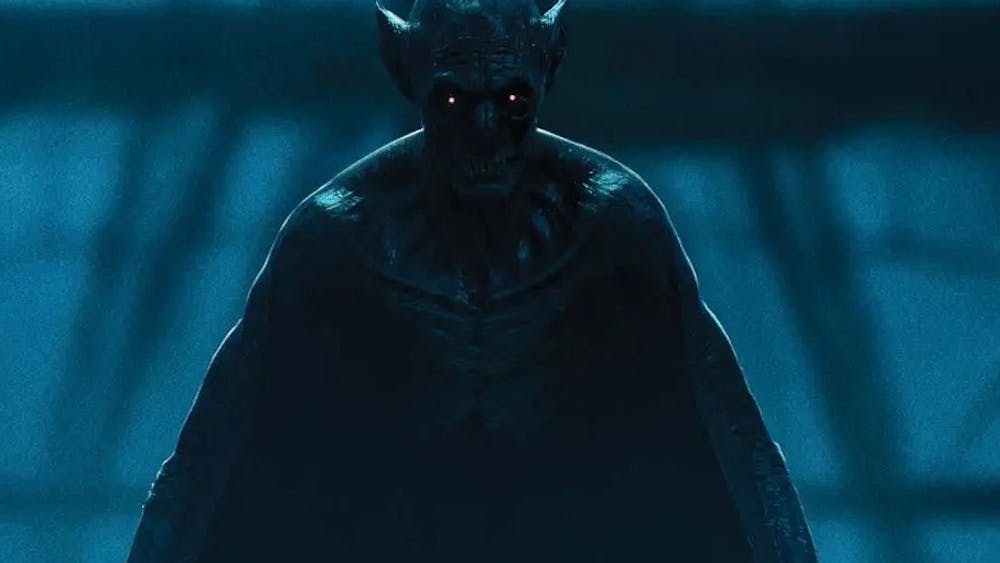The glint in the eye of the young Winthrop Paroo as he belts out his show-stopper "Gary Indiana" marks the triumph of stubbornness in River City, Iowa by the glory and grace of music. Once Winthrop's young heart is won by the glamour of Harold Hill in Meredith Wilson's "The Music Man" the final chord is struck over the audience as well, and no one can keep from smiling ear to ear.\nThe Tony award-winning musical from 1956 (which beat "West Side Story" for the coveted prize), now currently in a reincarnation on Broadway, epitomizes American nostalgia and its love for music that is purely American by showcasing everything from the Broadway ballad to barber-shop quartet.\nIn the IU Opera production which closed on Saturday night, that same nostalgia and grinning love was also in the air as couples sat cuddled, listening to the melody of "Sweet and Low."\nFor myself, it is difficult not to love "The Music Man" for, 15 years ago, it was my introduction into Musical Theater. But, what was wonderful and disheartening about this particular production was that it was all about the music.\nThe scenes in the musical are dominated by musical number after musical number where much of the exposition is unfolded from the salesmen's "Rock Island" rap to the harmonious banter between mother and daughter in "Piano Lesson."\nFor the performers, to rap a song was as natural as to sing an aria, and with humor and color the words and story unfolded. But, when music was not played or words not spoken rhythmically, the life was lost. Scenes seemed merely to occur one at a time rather than to flow through each other in a natural progression. Each scene had its purpose of getting to the number in order to be safe -- thank goodness there was not more dialogue or the performers may have been lost in lines.\nBut, once the numbers arrived, pure magic is what occurred. The highlight of the evening's music, and most deserved its lauded applause, was the barber shop quartet/school board members performed by graduate students David Sadlier, Michael Redding, Creighton James and John Huckle. The four were tenaciously intoxicating, giving the film's Buffalo Bills a run for their money.\nThe most standout performances came from the entire Paroo family, most notably Evelyn Pollock as Marion, whose lovely voice, natural beauty and stubbornness turned amorous devotion to the dream of Harold Hill's Boy's Band stole this reviewer's heart. Rory Derryberry as Winthrop was a delight, as he not only belted his songs but also had a lovely young upper range that made the young boy much more than excitable -- he had joy.\nHarold Hill's character, a "swindler" and "two-bit thimble rigger" as his nemeses Mayor Shin and Charlie Cowel, the anvil salesman often call him, has very little merit as a character. He is a fake, "A big liar" and doesn't know one note from another. But, his infectious personality takes over the town and hopefully the audience and thus we cannot hate him, especially for what happens to the town.\nBut, much like the show's inability to play out as a smooth progression of scenes, graduate student Michael Deleget as Harold Hill was unable to be as charismatic and slick as is necessary for his character's livelihood. Though Deleget nailed down the song and dance man aspect of Hill, the complete smoothness of Hill seemed to elude him.\nThe colorful, yet very much not IU set, was lit exceptionally well by Assistant Lighting designer for the MAC, Michael Shwandt. The necessary rainbowesque color scheme was highlighted by Diane Buzzell's choreography, highly reminiscent of the film's dancing -- especially during "Seventy-Six Trombones" and "Shipoopi."\nBut, with all of the music, color, dancing and nostalgia, "The Music Man" just did not have the overall sparkle and charm that makes the show larger than life. Great singing and colorful stage pictures do not a spectacle make, and the small complement of pit instruments did not aid that fate. What the IU Opera Theatre needed for this show was the IU Opera theatre -- something that is bigger than life.
'Music Man' boasts fantastic music, lacks flow
Get stories like this in your inbox
Subscribe





